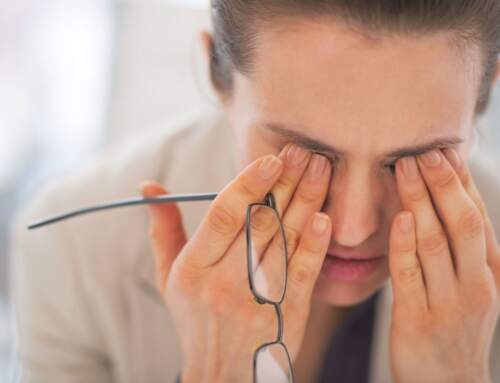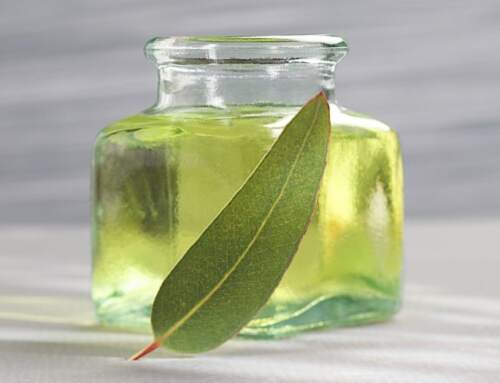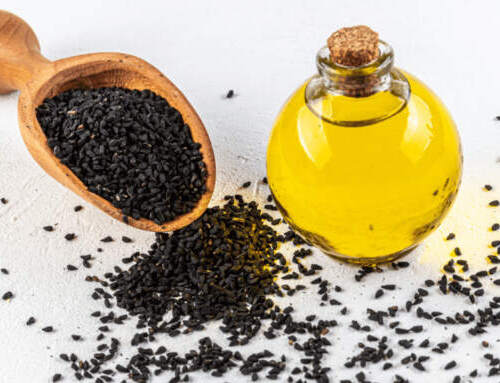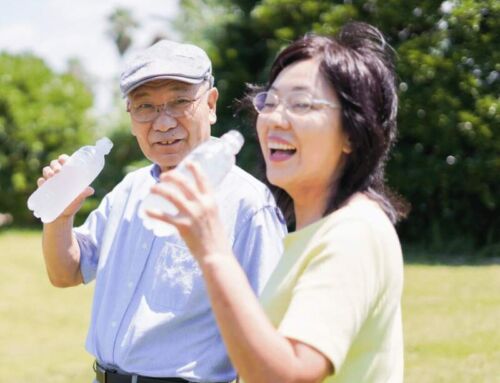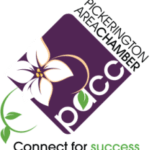The Amazing Way Acupuncture is Boosting Fertility
In her early thirties, Jill Hoefs had tried everything she could think of to get pregnant: Tracking her ovulation; lying with her legs in the air for 15 minutes after sex; changing her diet. After five months of no success, she and her husband moved on to fertility treatments, specifically, intrauterine insemination (IUI), in which a doctor places concentrated sperm directly into the uterine cavity (also known as “the turkey baster method”). But after three soul-crushing rounds of failed IUI, the New Jersey-based physical therapist still wasn’t pregnant.
Then she tried acupuncture, a 3,000-year-old practice in which sterile ultra-thin needles are inserted into specific points throughout the body called acupoints. After five sessions, she was pregnant with her son, now seven years old.
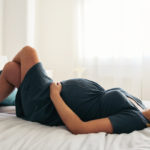
The Infertility Struggle
One in eight married, heterosexual couples will struggle to conceive or sustain a pregnancy. Depending on age, couples are generally advised to seek medical help if they’re unable to get pregnant after a year of unprotected intercourse (sooner if the woman is over 35). That help can come in many forms, but typically involves medically stimulating the ovaries to produce more eggs, IUI, or, in the case of in vitro fertilization (IVF), removing eggs from the woman’s body and sperm from the man’s body, using them to create embryos, then putting one or more embryos back in the woman’s body.
While these procedures can work—women undergoing IVF have about a 32 percent chance of delivering a baby, slightly better
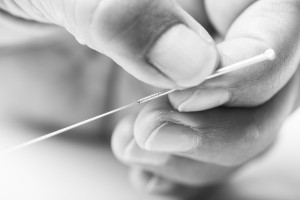
We have an exceptional staff of massage therapists and acupuncturists.
than the 20 percent chance that a reproductively healthy couple has of conceiving and delivering in any given month—they can be emotionally and physically taxing and ferociously expensive. The average cost of an IUI or IVF cycle in the United States is $2000 and $12,400, respectively, according to the American Society for Reproductive Medicine.
But for women like Hoefs, now 42, who weren’t having success with conventional fertility treatment, acupuncture is gaining traction. “Women come in not only because they’re frustrated with Western medicine, but because of the success we’ve seen over the past 20 years in helping women get pregnant and deliver babies,” says licensed acupuncturist and board certified herbalist Liz Carlson, LAc, co-founder of Common Point, a modern acupuncture clinic in Tribeca, New York.
Success rates comparing acupuncture to no treatment at all are hard to come by, primarily because of the breadth and depth of issues contributing to infertility, the wide age group being treated, and the inability to control for all factors, Carlson says. But a review of 23 trials involving acupuncture and IVF (5,598 participants total) concluded that acupuncture does, in fact, improve pregnancy outcomes in women undergoing IVF. A recent study from Tel Aviv University, combining IUI with traditional Chinese medicine treatments, like acupuncture, helped 65.5 percent of the women, compared with just under 40 percent of the control group, who received no acupuncture or herbal therapy.
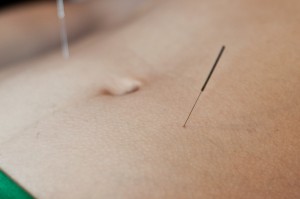 That said, plenty of women come to Carlson who aren’t using acupuncture as an adjunct to Western fertility treatments, but rather in place of them—even if they lack known fertility problems. They’re coming in because they “simply want to optimize their chances of getting pregnant without drugs or intensive medical treatments.”
That said, plenty of women come to Carlson who aren’t using acupuncture as an adjunct to Western fertility treatments, but rather in place of them—even if they lack known fertility problems. They’re coming in because they “simply want to optimize their chances of getting pregnant without drugs or intensive medical treatments.”
How These Needles Improve Conception Rates
In a supremely stressful world, acupuncture helps the body decompress, Carlson says. One happy side effect of that can be improved fertility.
“In all women, regardless of whether or not we are trying to get pregnant, our body strives to conserve energy when it’s under stress,” Carlson explains. One way it does this is by essentially ignoring the reproductive system and favoring more imminently necessary systems and organs like the brain, heart and lungs. “Modern society is so stressful – there’s stress from work, trying to achieve a healthy life balance, a poor diet, insufficient sleep, or too much time spent online. Now, add the stress of not being able to conceive on top of that and the body basically ‘forgets’ about the reproductive organs, making it even harder to get pregnant.”
Here’s where acupuncture comes in. “Inserting the needles prompts a release of endorphins and feel-good chemicals, like norepinephrine, serotonin and dopamine, which help move the brain out of stress mode. It essentially stimulates the body to heal itself,” she explains. That healing can take place in many forms…
Acupuncture stimulates the immune system.
“The needles go in and the nervous system says, ‘Hey, what’s this? Let’s go check it out,’” Carlson describes. And when the immune system goes to investigate the supposed invasion, which is actually just a series of acupuncture needles, it’s able to detect underlying issues that might be contributing to infertility, including a pH imbalance in the cervical tract or an undiagnosed vaginal infection. So in this way, acupuncture amplifies the overall immune system, which helps the patient conceive.
Acupuncture helps regulate digestion, improves nutrient absorption, and regulates hormones.
The body needs nutrients to create the precursors essential to conception: 1) Healthy ovarian follicles or eggs, 2) a thick, plush uterine lining, 3) balanced hormones, and more. If your body is nutrient-deficient, or if you’re not absorbing nutrients well due to digestive issues, conception won’t happen as easily, if at all.
Acupuncture eases stress.
Animal research out of Georgetown University Medical Center suggests that acupuncture appears to interrupt the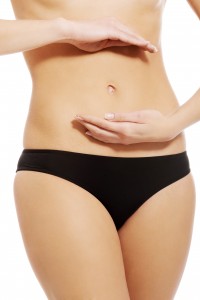 transmission of stress hormones, similarly to how some antidepressants and anti-anxiety drugs work in humans. Sonima’s naturopathic medical advisor, Janet Zand, LAc, OMD, a board-certified acupuncturist and Diplomate of Acupuncture and Chinese Herbs, notes that heightened levels of certain stress-sensitive hormones, like prolactin and cortisol, can lead to system-wide inflammation (also characterized as “heat” by acupuncturists), reducing conception odds. Needling certain acupoints can balance that heat by leveling out hormones.
transmission of stress hormones, similarly to how some antidepressants and anti-anxiety drugs work in humans. Sonima’s naturopathic medical advisor, Janet Zand, LAc, OMD, a board-certified acupuncturist and Diplomate of Acupuncture and Chinese Herbs, notes that heightened levels of certain stress-sensitive hormones, like prolactin and cortisol, can lead to system-wide inflammation (also characterized as “heat” by acupuncturists), reducing conception odds. Needling certain acupoints can balance that heat by leveling out hormones.
Also, don’t underestimate the ability of acupuncture’s hands-on approach to alleviate stress. “Chinese medicine is very patient-centered,” Carlson says, and your practitioner will offer you emotional support, some talk therapy, and all the manual work makes you feel like you’re being cared for as individual, which can feel calming.”
Acupuncture can calm the uterus post-IVF.
Some women opt for acupuncture immediately after IVF to quiet any contractions that could possibly render the space less hospitable to newly implanted embryos. In a study published in Fertility and Sterility of patients undergoing IVF, those who received acupuncture before and after embryo transfer were significantly more likely to conceive versus those who didn’t (39 percent vs. 26 percent).
[…]
Click here to view original web page at www.sonima.com
Also look into fertility massage!

